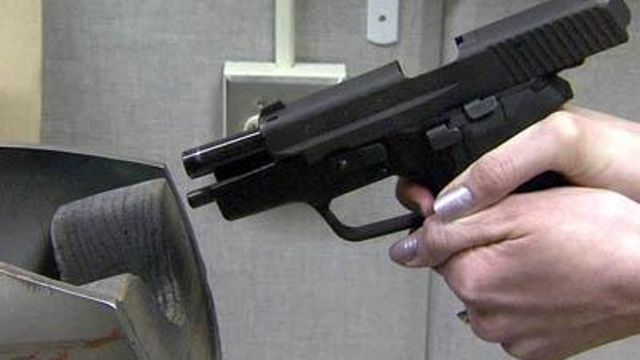Outside review backs SBI ballistics lab in disputed case
An independent review of evidence from a Pitt County murder case supports the findings of ballistics experts at the State Bureau of Investigation, according to a report released Thursday.
Posted — UpdatedPitt County District Attorney Clark Everett requested the review after published reports this summer questioned the validity of SBI findings in the 2006 conviction of Jemaul Raoul Green in the shooting death of a 10-year-old boy in Ayden.
Green claimed during his trial that someone else fired the fatal shot, but SBI forensic firearms analyst Beth Desmond testified that the evidence found at the scene pointed to a single gunman.
Stephen Bunch, former chief of the Firearms and Tool Mark Unit of the FBI Forensic Laboratory, recently reviewed the evidence and reached the same conclusions as Desmond. In both analyses, eight shell casings were determined to have been fired by the same 9 mm handgun, but no definitive conclusion could be made about two bullet fragments found at the scene of the shooting, although they showed similar characteristics.
"We are encouraged by that. We continue to welcome scrutiny and are certainly open to criticism," SBI Director Greg McLeod said Thursday.
Dave Sutton, one of the defense attorneys in Green's trial, said he doesn't view Bunch's report as conclusive that all of the bullets came from one gun. He also noted that Desmond testified at trial that there was a conclusive match on all of the bullets, casings and fragments.
McLeod said Bunch's review looked strictly at the analysis provided by the ballistics unit. He also said the SBI crime lab now asks that judges, prosecutors and defense attorneys evaluate analysts' trial testimony.
Everett said he was satisfied with Bunch's report, saying it agrees with the theory that there was no second shooter in the Green case. Defense attorneys are now trying to attack Desmond's testimony because they can no longer question the credibility of her work, he said.
The questions surrounding the SBI's ballistics analysis came in the wake of a critical outside audit of the SBI's blood-stain analysis unit. The audit found 190 cases that resulted in convictions from 1987 to 2003 in which analysts omitted, overstated or falsely reported information about blood evidence.
Following that audit, Attorney General Roy Cooper removed the director of the SBI crime lab and ordered audits of every section of the lab. Those audits are still going on, and a special panel that Cooper appointed is conducting a national search for a new crime lab director.
Some critics have questioned the value of ballistic testing for years. The National Academy of Sciences, for example, says more research is needed to prove the science before definite matches between firearms and their bullets can be made.
"That's something that the entire forensic science community continues to look at and make sure that information that is presented is presented in a way that folks understand it and can weigh it appropriately," McLeod said.
Ballistics testing has a place in the crime lab, he said, citing the case of Samuel Cooper, who was convicted of killing five men in Wake County 2006 and 2007. Investigators used a gun seized after a robbery to link him to the murders.
McLeod said the SBI is working to improve the ballistics unit by having cameras photograph what analysts see under the microscope and add those photos to case files.
• Credits
Copyright 2024 by Capitol Broadcasting Company. All rights reserved. This material may not be published, broadcast, rewritten or redistributed.




